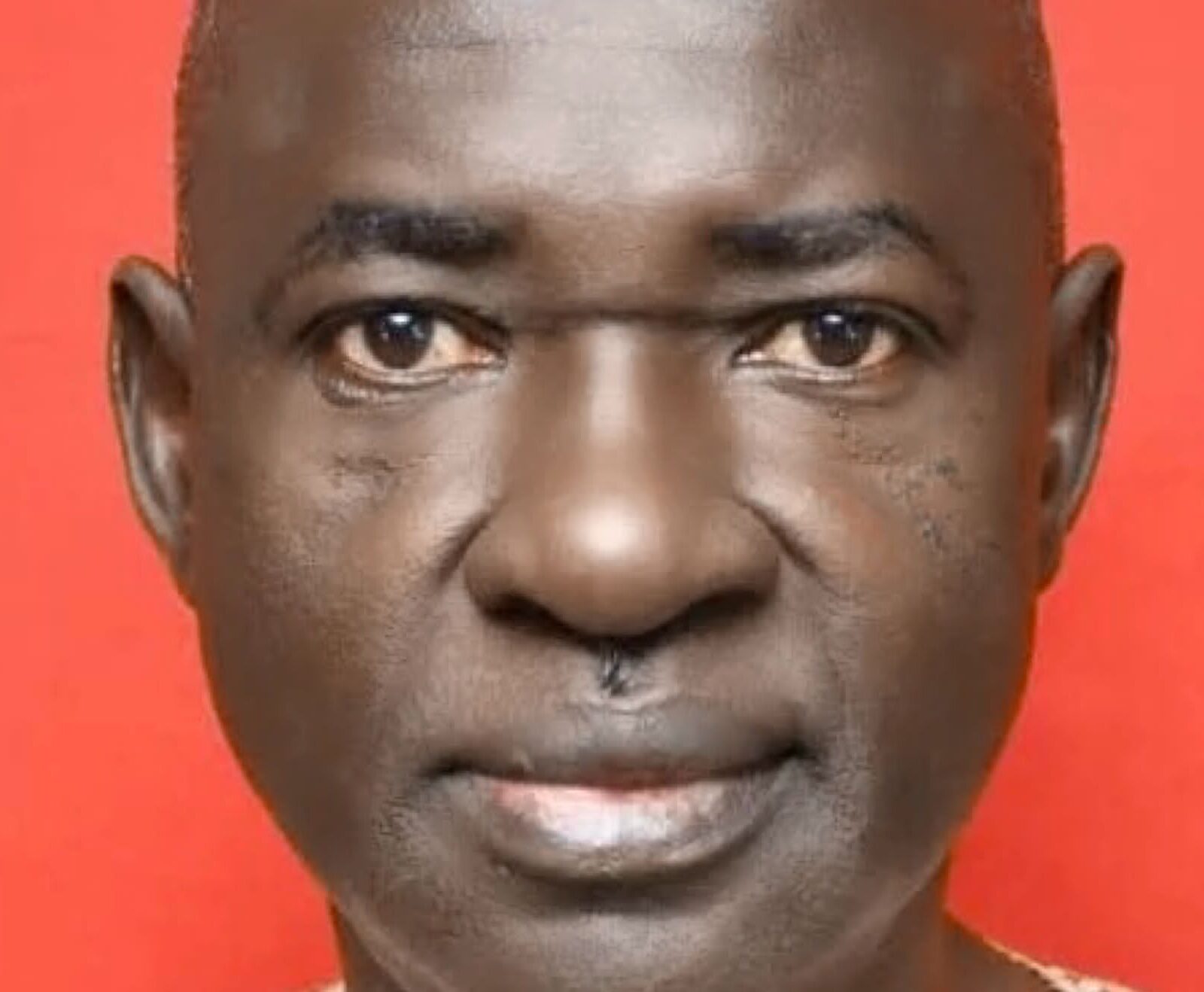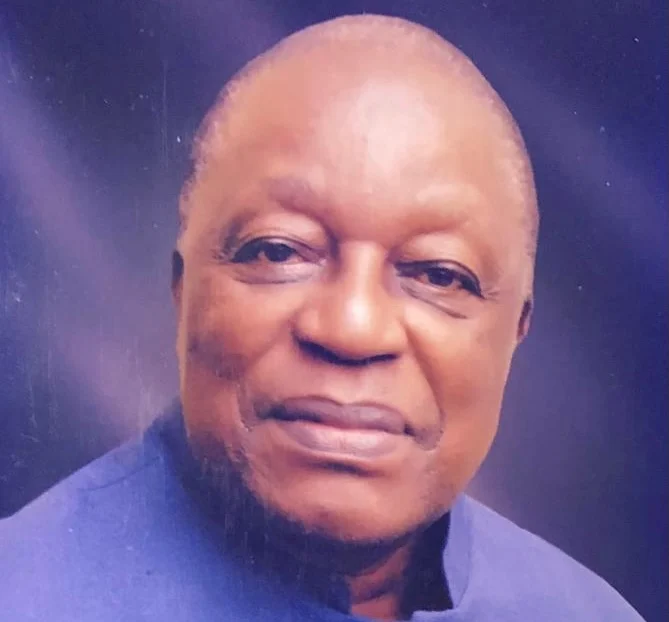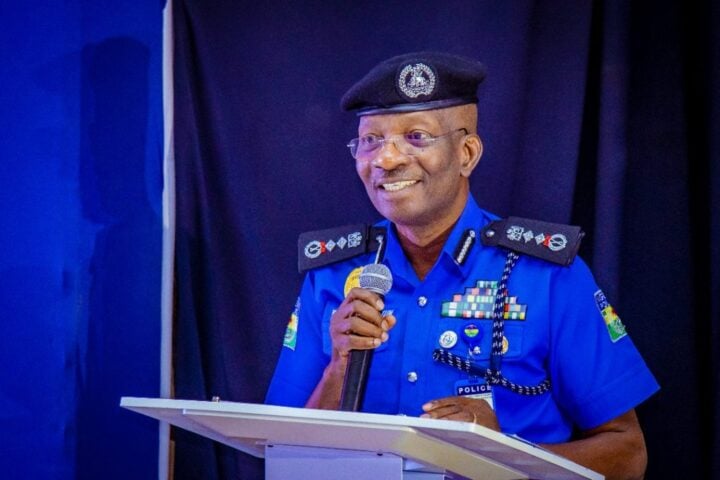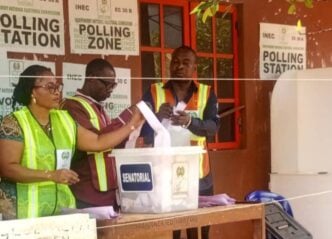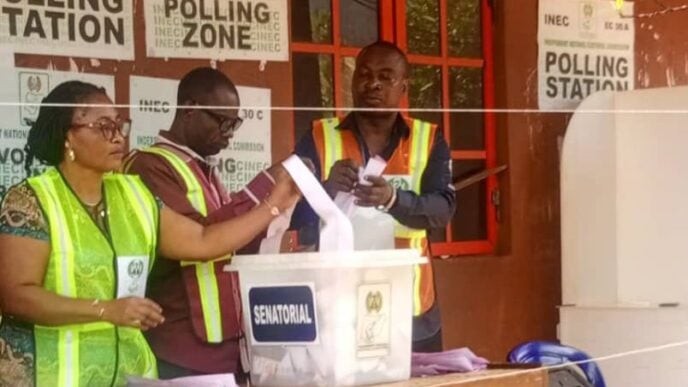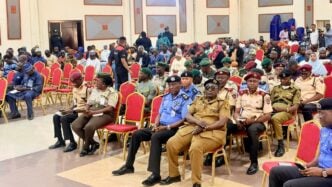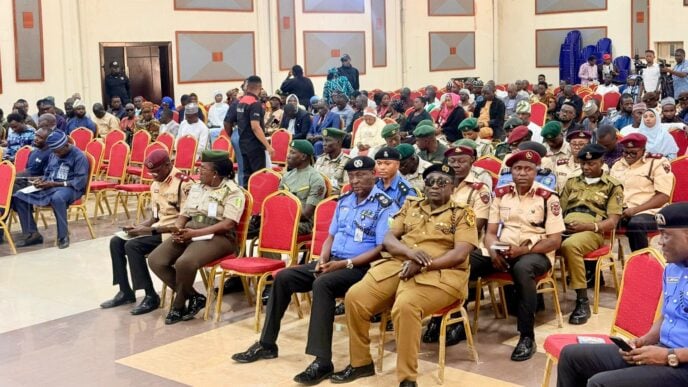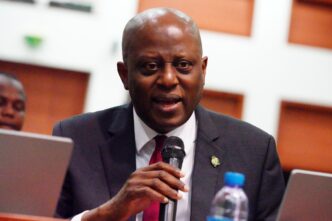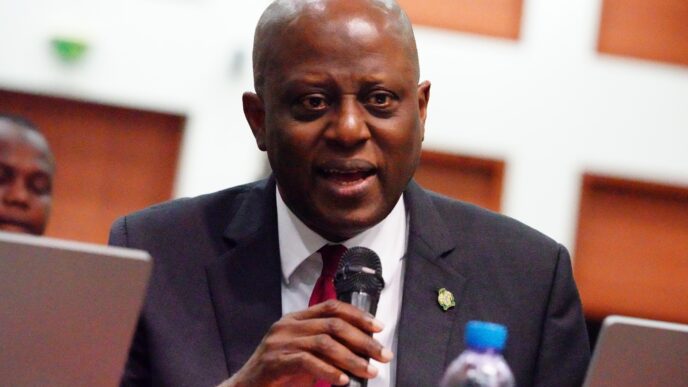Our paths first crossed in 1999. I was then the features editor of THISDAY newspapers. Television broadcasting in Nigeria had just clocked four decades and I wanted something unique to grace my pages in commemoration. A meeting was arranged with the first African managing director and technical consultant of the Western Nigeria Radio and Television Broadcasting Corporation (WNTV-WNBS), Ibadan, Nigerian Television Authority (NTA)’s precursor. Two hours of interaction with Otunba (Dr) Lawrence Olu-Ibukun confirmed to me that he was a truly remarkable man.
The immediate product of that encounter was my article in THISDAY, “Song of a Front-liner”, published on October 28, 1999. Its opening paragraphs have remained fresh: “At a certain function, Mr. Vincent Maduka, a former Director General of NTA, introduced him thus: ‘This man gave me my first job.’ Somewhere in Benin-City, during a party, Apostle Hayford Alile, the outgoing Director General of the Nigerian Stock Exchange, could not contain his excitement when he saw him. He walked up to him (Olu-Ibukun) and announced, ‘This man taught me physics at Ibadan.’
“When a man like that tells you that he is fulfilled in life, you simply would not have any cause to doubt him. The most important reason why you would believe Dr Olu-Ibukun is that he succeeds in expressing it without any visible trace of arrogance or vanity often associated with men and women that have lengthy, rich and, at times, intimidating curriculum vitae. The voice is that of a contented man. The calculated, dignified intonation belongs to someone thoroughly exposed to civilised socio-linguistic cultures. That does not take from him his innate identity – a down-to-earth mien of a Yoruba man; a worthy owner of the traditional titles of Chief Ajaguna II and Otunba Asiwaju of Ogbagi-Akoko.”
Surely, those ingredients in his humble beginnings that propelled him to enviable, outstanding heights both locally and globally should be of interest to whoever values genuine lifetime achievements. Born in Ogbagi-Akoko, Ondo State in 1932, his tertiary education in University College Ibadan (later re-named University of Ibadan – UI), Imperial College of Science and Technology of the University of London between 1950 and 1957 and, much later, University of Besancon, France, positioned him effectively for the life of an accomplished scholar and technocrat. By the way, his PhD in Electrical Engineering and Applied Physics was made in London.
Advertisement
Returning to UI in 1957 as a Physics lecturer at the age of 25 years instantly marked Olu-Ibukun as a frontrunner. He was the premier university’s first graduate to do so. The four years he spent on that job also witnessed his foray into politics which yielded the membership of Akoko Divisional Council in Ikare, Western Nigeria House of Assembly Ibadan, representing Owo Central and the House of Representatives. The fine combination of lecturing and democratic representation most likely prepared him for his novel WNTV-WNBS assignment. Again, by the time he joined the television house in 1961, two years after its historic debut, he was the first Nigerian graduate to so do.
A comprehensive indigenisation of the first television establishment in Africa had just begun. The regional government of Chief Obafemi Awolowo needed someone who could negotiate with its foreign partners and fast-track the process of de-colonising the organisation in order to achieve full technical, operational and cultural repositioning. Olu-Ibukun was saddled with the tasks of costs-cutting (too many resources were going into installations and maintenance), smooth operations, adequate programming and recruitment of competent personnel.
Chief Awolowo, revered sage and visionary, was not about to gamble with his pet iconic project. The new helmsman was, therefore, given only one year to do everything he could to make his briefs possible. Thankfully, his two years on the job eventually made critical inputs into the history of broadcasting in Africa. Before he assumed the post, there were over 50 expatriates in the nascent institution. Only six remained by the time he was through with the restructuring.
Advertisement
His reminiscences about that sensitive period as relayed in my interview 26 years ago are characteristic of his level-headedness and still instructive: “I really had not much to fall back on. I was a young man full of zest and enthusiasm. I knew what it meant to stand on the floor of the House to put my views and convictions across. I also knew very well, by the grace of God, what it took to impart knowledge to eager students. Having to take major decisions in an industry that was emerging was a different matter. All I needed to do which I did was take my time and study the situation. I was also fortunate to have people under me who knew what was at stake, what we all stood to gain or lose in the event of success or failure.
“I might not have achieved the best performance but, all the same, to the best of my ability, I thought I left a mark there. Some of the people who were in a position to know then tell me even now that I tried my best. I don’t have any reason to think that they’re out to flatter me. In any case, only posterity can judge. If NTA celebrates 40 years today, it is doing that not necessarily as a body. It is indeed celebrating the advent of a new phenomenon in Africa as a whole. Outside, people give a lot of credit to Nigeria for this. I thank God I was part of the team that saw to it that the thing had a good start.”
That team led by Olu-Ibukun had every reason to raise its head high. The foundation it laid was strong enough to chart a road not travelled in these parts at the time. And that infant platform produced personalities like Ambassador Segun Olusola, Steve Rhodes, Julie Coker and Maduka who eventually became the nation’s television role models, idols and legends. Maduka was later appointed as the pioneer director general of the federally-reconfigured NTA in 1977. The administrative and professional launchpads of television broadcasting in Nigeria were that formidable.
The career of this holder of Officer of the Order of the Niger (OON) kept moving upwards after he left WNTV-WNBS in 1963. A return to UI as a research fellow in Physics. A break into the diplomatic world as deputy director at UNESCO Regional Office for Science and Technology for Africa in Nairobi, Kenya. A teaching come back as senior lecturer at University of Lagos. Other, much longer UNESCO engagements from 1967: programme specialist at the headquarters in Paris – while civil war raged in his home country; director, UNESCO Regional Office for Science and Technology, Nairobi; UNESCO representative to Kenya with ambassadorial status in Uganda, Tanzania, Ethiopia, Mauritius and Somalia. His last major portfolio at the United Nations body was deputy assistant director-general based at the Paris headquarters. That ended in 1992 but he remained a consultant to the apex global institution for science and education, among others.
Advertisement
Having retired from the global stage but not tired at 60, the Government College, Ibadan old boy surely had something to offer his own people politically. Or so he thought. But his move for the presidential ticket of the defunct Social Democratic Party in 1993 didn’t click. Settling for special adviser to Ondo State governor on education thereafter meant one thing: heart for service. The more I met with him, the more I became convinced that he was indeed a study in substance. The numerous awards and recognitions that he earned lent credence to a life of real fulfilment and impact. This weekend in Ogbagi, the remains of a true son of the soil will be interred – after 93 years of illustrious, eventful existence. Rest on, Sir.
Ekpe, PhD, is a member of THISDAY editorial board.
Views expressed by contributors are strictly personal and not of TheCable.
